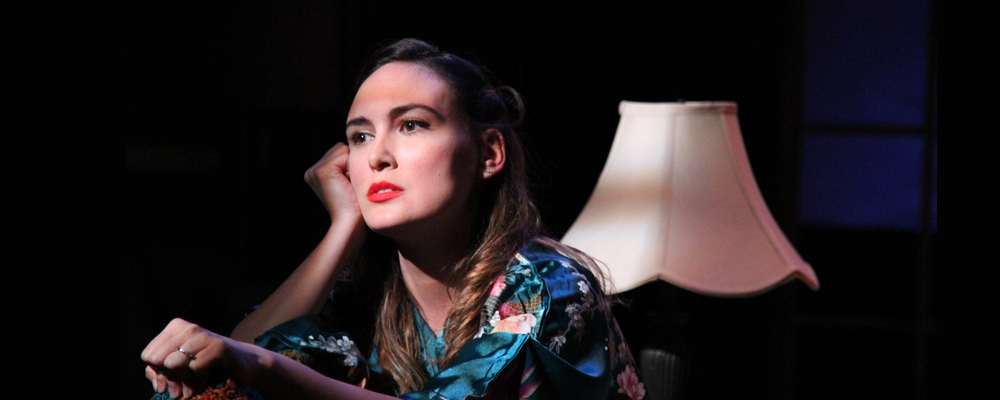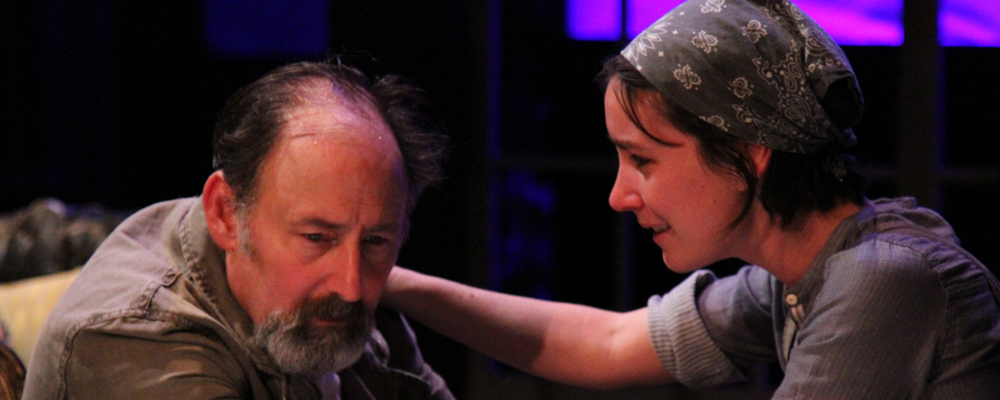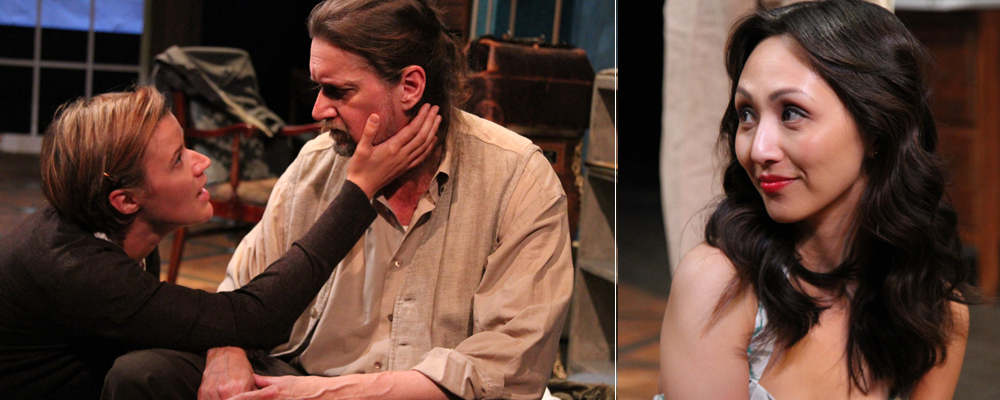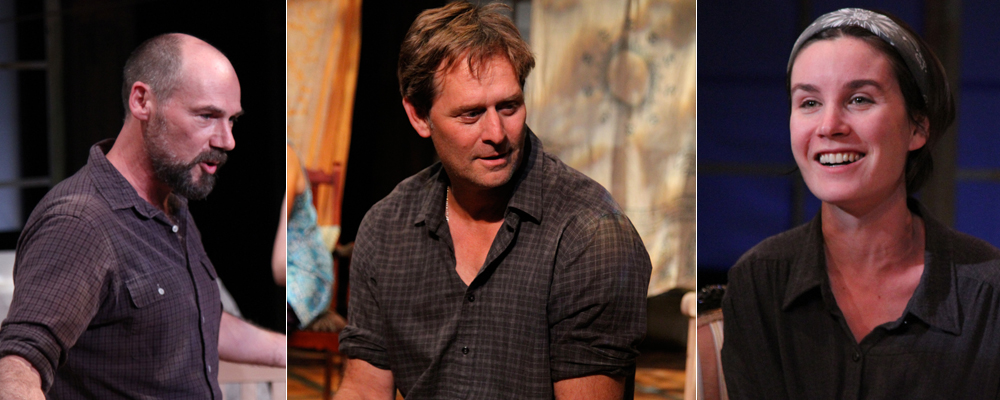Annie Baker’s Chekhov Translation ‘Uncle Vanya’ Debuts at Antaeus Theatre Company
T.S. Leonard
“For what it is, life is pretty boring and stupid. You’re surrounded by creeps, you spend all day hanging out with creeps, a few years go by and little by little, without even realizing it, you become a creep yourself. It’s unavoidable.”
If you had to take a guess at whether the above piece of dialogue was Salinger or Chekhov, chances are you’d choose the former. Angsty diatribes against the dishonor of “creeps” seem more fitting for Holden Caulfield. But au contraire, these lines are indeed some of the first spoken by Astrov in “Uncle Vanya” – as adapted by Annie Baker.
Suffice it to say, this is not your babushka’s Chekhov. This boldly modern-minded “Uncle Vanya,” enjoying its West Coast premier this month at the Antaeus Theatre Company in North Hollywood, reimagines its time-tested source material with contemporary colloquial dialogue and a non-traditional design.
The revival garnered rave reviews in its 2012 Off-Broadway debut. Since then, its translator – playwright Annie Baker – won a Pulitzer Prize for Drama for her 2014 play “The Flick.” Such high praise comes as no surprise to any student of Baker’s. She has an impeccable ability to draw upon the traditional advantages of staged storytelling and breathe into them a remarkable freshness.
And for “Uncle Vanya,” a play centered around the lethargic ennui hanging over a rural Russian estate, to feel fresh is no small feat. Much of this success is owed not only to Baker’s interpretation but also that of its director, Robin Larsen. Larsen is on a victory lap after reviving Edward Albee’s “A Delicate Balance” last year and George Bernard Shaw’s “Mrs. Warren’s Profession” the previous year. Both productions helped cement her reputation as one of the most innovative interpreters of classic works on the West Coast.
Like all productions at the Antaeus, “Uncle Vanya” is mounted with a “partner-cast:” two separate ensembles of actors who rotate performances. Their collective energy coupled with Larsen’s precision for emotional nuance help the famously actionless play feel brisk and immediate.
Of course, this is still an evening of Chekhov, and one should be prepared for the commensurate meditation on affairs, their shortcomings, our shortcomings, the meaninglessness of it all. None of this has been lost in translation. That being said, the modern repackaging of this particularly Chekhovian pathos reminds us why it resonated in the first place: life can be pretty boring and stupid.
“Uncle Vanya” plays October 8 to December 6 at the Antaeus Theatre Company.





